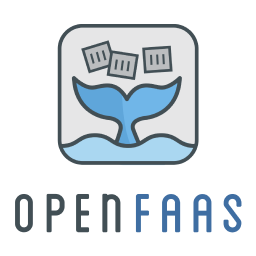OpenFaaS
Thank you for deploying OpenFaaS to Civo's k3s service.
Obtain access
The OpenFaaS gateway has been made available through a NodePort on port 31112 on each node.
- Go to your Civo dashboard, click Kubernetes and then your OpenFaaS Cluster.
Look for the DNS entry that you find there, it may look something like 6c1c1646-25cf-44f0-9bd5-53ee35cd7c84.k8s.civo.com
This DNS record which points at each of the nodes in your cluster.
- Set the following URL:
export DNS="" # As per dashboard
export OPENFAAS_URL=http://$DNS:31112
Get your kubeconfig
Pick A or B:
A) Get your kubeconfig via command-line
civo k8s ls civo k8s kubeconfig --save <CLUSTER_NAME> kubectl config set-context <CLUSTER_NAME>B) Get your kubeconfig via the Dashboard
Download your
kubeconfigfile from the Civo dashboard.Now set the
KUBECONFIGenvironment variable, so that you point at your new cluster:export KUBECONFIG=$HOME/Downloads/config-file.yaml
Find your generated password
You can find your password above and save it as password.txt.
Alternative, retrieve the password using kubectl:
echo $(kubectl get secret -n openfaas basic-auth -o jsonpath="{.data.basic-auth-password}" | base64 --decode; echo) > password.txt
Use the CLI to log in
Now install the faas-cli and log in:
cat password.txt | faas-cli login --username admin --password-stdin
Deploy a test function
faas-cli store list
# Find one you like
faas-cli store deploy nodeinfo
# List your functions
faas-cli list --verbose
# Check when the function is ready
faas-cli describe nodeinfo
Name: nodeinfo
Status: Ready
# Invoke the function using the URL given above, or via `faas-cli invoke`
echo | faas-cli invoke nodeinfo
echo -n "verbose" | faas-cli invoke nodeinfo
Access the OpenFaaS Gateway UI
You can now use the DNS entry you found earlier in a web-browser to access your dashboard.
echo $OPENFAAS_URL
Next steps
- Read the docs: Deploy TLS with LetsEncrypt to enable HTTPS
- Learn OpenFaaS: Try The Official Workshop
- Get help: Join the OpenFaaS Community
